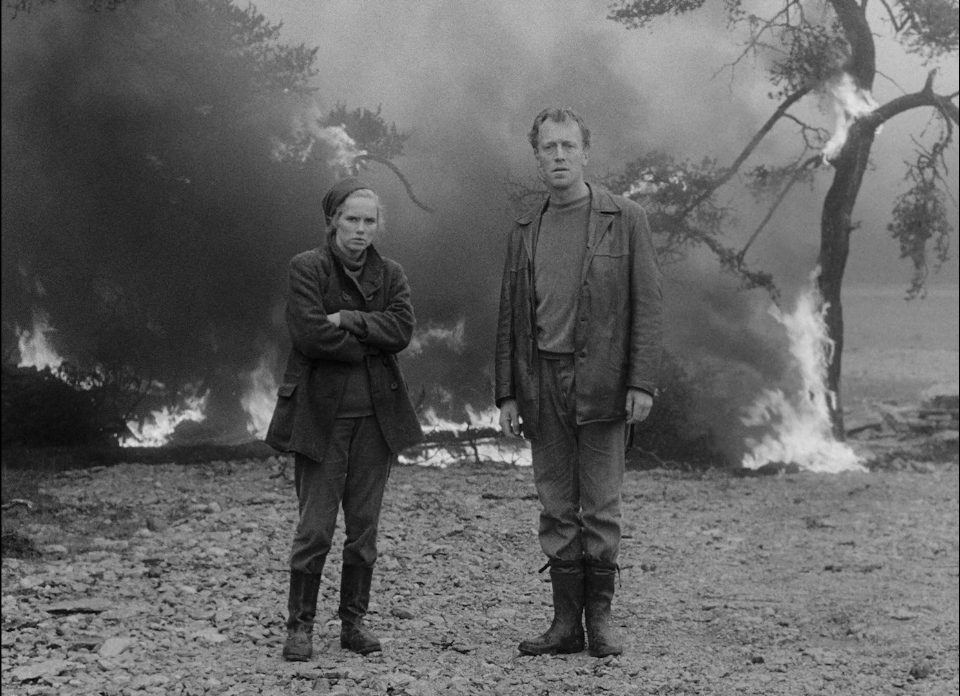 Watching Ingmar Bergman’s Shame, you may be confused about the war happening at the narrative’s periphery, and, when soldiers start showing up and wreaking havoc, you may be unable to remember which side is which. This is either the point or beside the point, as the movie is clearly more interested in the married couple at the story’s center, the moral and psychological toll dystopic war-making has wrought on their lives and relationship. The first act unravels with a low-hum nausea wrung from the oddly quotidian ways people deal with impending doom, reconfiguring Shame in 2019 as a prescient mood piece about climate change, about oblivion and obliviousness. In 1968, however, there’s little doubt of its Vietnam War commentary and the provocative racial twist at the movie’s core. After an especially horrific scene of violence, gorgeously white actors Liv Ullmann and Max von Sydow stare directly into the camera, an act of both implication and confrontation. The question behind their eyes is clear: “If you care about what is happening to us, why don’t you care about what is happening to them?” The thems of the world may have changed; our collective shame has not. -Matt Denvir
Watching Ingmar Bergman’s Shame, you may be confused about the war happening at the narrative’s periphery, and, when soldiers start showing up and wreaking havoc, you may be unable to remember which side is which. This is either the point or beside the point, as the movie is clearly more interested in the married couple at the story’s center, the moral and psychological toll dystopic war-making has wrought on their lives and relationship. The first act unravels with a low-hum nausea wrung from the oddly quotidian ways people deal with impending doom, reconfiguring Shame in 2019 as a prescient mood piece about climate change, about oblivion and obliviousness. In 1968, however, there’s little doubt of its Vietnam War commentary and the provocative racial twist at the movie’s core. After an especially horrific scene of violence, gorgeously white actors Liv Ullmann and Max von Sydow stare directly into the camera, an act of both implication and confrontation. The question behind their eyes is clear: “If you care about what is happening to us, why don’t you care about what is happening to them?” The thems of the world may have changed; our collective shame has not. -Matt Denvir
Shame (in 250 words or less)
